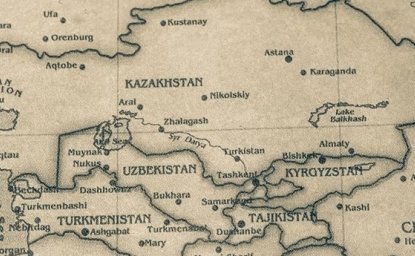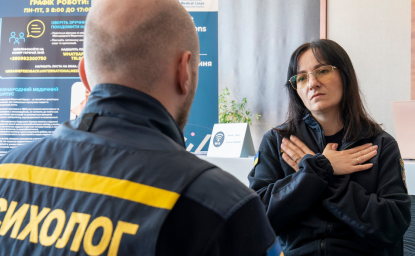Challenges Lie Ahead for Ukrainian Democracy

"While some people may say that Ukraine is a presidential parliamentarian republic, it still does not have an effective, stable political system," contended Sergiy Komisarenko, President of the Ukrainian Institute for Peace and Democracy at a 7 April 2003 meeting at the Kennan Institute. He attributed the instability of the Ukrainian political system, in part, to the country's ineffective economic policy. Komisarenko explained that as evidenced by the results of the latest parliamentary election, opposition parties in Ukraine have very few legal rights and suffer from a lack of structure. He discussed the leading candidates for the upcoming presidential election, and explained President Kuchma's attempts to introduce constitutional reforms that could influence the election.
Komisarenko argued that the mishandling of Ukraine's economy, including the introduction of ineffective economic reforms, contributed to nearly ten years of economic decline. He noted that Ukraine has been "the only one of the former Soviet Republics that failed to achieve a single year of economic growth since gaining its independence." According to Komisarenko, "an optimal and effective macroeconomic policy can only be realized under the conditions of a stable political system with proper leadership, principle market institutions that work properly, national self-esteem, and an open and public society."
Komisarenko contended that although Ukraine may appear to have a presidential parliamentary system, the "real" government is still controlled by the president and his administration. He explained that according to the constitution, the administration is to serve as an advisory organ to the president, but in reality it functions as the government. Bureaucrats within the administration pressure opposition groups to ensure that the presidential agenda is adhered to.
In Komisarenko's opinion, the language of the constitution severely limits the "constructiveness, structure and legal rights of the political opposition." This was evident following the 2002 parliamentary elections, Komisarenko explained, when despite originally capturing a majority of the seats, many members of the opposition were later "persuaded" by the presidential administration to leave the coalition.
According to Komisarenko, the instability of the Ukrainian political system makes it nearly impossible to predict who will be the next president of Ukraine. He listed approximately ten different people who could possibly win the upcoming election, but also warned that there are no guarantees that any–including Viktor Yushchenko, current party leader of Our Ukraine–would make it that far. Komisarenko argued that although Mr. Yushchenko remains extremely popular, many are concerned about his ability to be a good president. Critics point out that Mr. Yushchenko failed to provide structured leadership as Prime Minister, and he now faces the task of holding together a mixed coalition of nearly fifty different political parties.
Komisarenko stated that regardless of who the final candidates are, the presidential administration can ultimately influence the outcome of the elections. He explained that the administration has exerted pressure on local authorities, organized crime groups, and the courts to shift the outcome of past elections. He noted that according to the latest constitutional reform proposed by the Parliament, the President would be able to transfer judges from one court to another, thereby increasing his ability to challenge election outcomes.
Komisarenko warned that the administration may also use falsified national census data or "dead souls" votes to elect its desired candidate. Control of the nation's various media outlets and central election commission could also be used to shift the election in favor of a pro-presidential candidate.
According to Komisarenko, there is still a chance that the current Ukrainian president, Leonid Kuchma, may attempt to lengthen his presidential term. Komisarenko posited that President Kuchma's original plan was to find a candidate who could guarantee him security and immunity (similar to the Russian case of Yeltsin tapping Putin). Because no suitable candidate was found, it appears that Kuchma has decided to use constitutional reform as his next strategy.
Komisarenko contended that President Kuchma's constitutional reforms are directed to extend his current term or enable him to be elected to a third. He explained that one of Kuchma's proposals is to reform the election schedule so that the presidential and parliamentary elections coincide. If this reform were passed, Kuchma would be able to remain in office until 2006. Perhaps more troubling, he noted, is Kuchma's suggestion of making national referendum an instrument of legislation. Komisarenko warned that such reform would be "disastrous for the development of democracy in Ukraine."
Komisarenko concluded by saying that he while the immediate outlook does not look positive for Ukrainian democracy, he hopes that the country will become an open, democratic society. He stated that in order to introduce a balanced and stable political system in Ukraine, leaders must build upon the country's economic, agricultural and intellectual potential.
Author
Ph.D.candidate, Department of Politics, University of Virginia

Kennan Institute
The Kennan Institute is the premier US center for advanced research on Eurasia and the oldest and largest regional program at the Woodrow Wilson International Center for Scholars. The Kennan Institute is committed to improving American understanding of Russia, Ukraine, Central Asia, the South Caucasus, and the surrounding region though research and exchange. Read more




